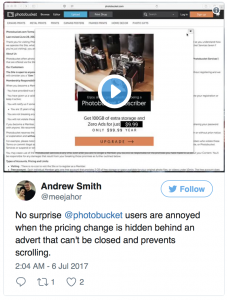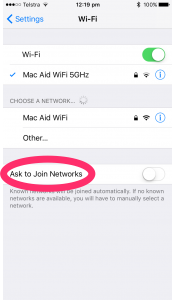Free services, who is really making the most of it?
Everyone loves a freebie, but when it comes to free services are we really the end users?
Or, are we just a product that can be easily bought and sold by bigger players?
Examples such as Photobucket and free wi-fi hotspots show just how little control we really have over our own information.
Photobucket’s Terms of Service
Image and video hosting service provider Photobucket came under the ire of its users in July.

Users who stored their imagery for use on sites such as blogs and forums were left shocked to see their images replaced with the message to “update your account”.
With no apparent warning given, the company instead opted to announce an “update to our terms of service”.
The change was contained at the end of the article, indicating that images would be left with broken links, with the only solution being to sign up to one of Photobucket’s subscription plans.
As it came with no warning, many people were unable to back up their content onto another device.
So if you store content with a free service provider, consider this as a reminder to invest in your own back up storage.
To make it easier for you, have one of Mac Aid’s technicians prepare and back up your content for you on devices such as the LaCie 4TB Porsche Design Desktop Hard Drive or the LaCie 2TB Rugged Portable Hard Drive.
Wi-Fi Hot Spots
Whilst on the subject of free services, this one here is a great way to end the month on.
Over 22,000 people fail to read the terms and conditions when agreeing to connect to a wi-fi hot spots all around the world.
In one instance in the UK, it has left people unknowingly agreeing to scrub festival portaloos.
Manchester based company Purple, works alongside businesses to provide public wi-fi hot spots.

To begin using the free service, people must agree to the user agreements.
This particular clause meant accepting to carry out hours of community service during the period of the experiment.
Purple handed out small prizes to those who actually read through the terms and commented.
Luckily enough, it mentioned that it was not binding to those who had agreed and used the service regardless.
However as amusing this may sound, it is a timely reminder that although its great to use free wi-fi, take caution when using its services.
Although free wi-fi is great for browsing the internet, ensure that you keep from accessing sensitive sites.
In most cases, using free wi-fi hotspots relies on unsecured connections.
By using unsecured connections, savvy criminals can easily take a hold of valuable and sensitive information.
To keep you safe, follow the below screenshot to deactivate automatic wi-fi network connections through Settings.












